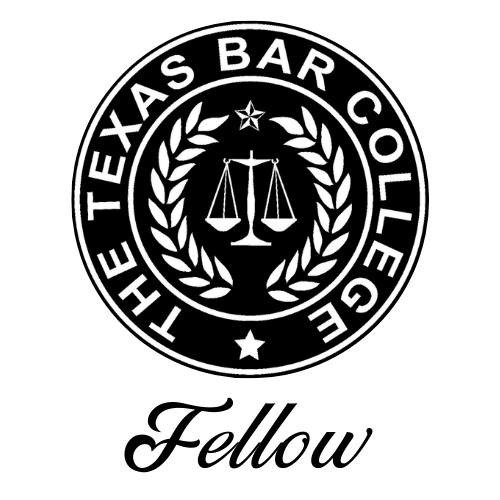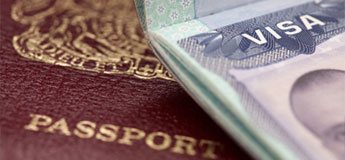


Family Based Immigration is when you are petitioning for your spouse, parent, child, brother, or sister.
Family Visa is an I-130. A US Citizen or Legal Permanent Resident may petition for his or her foreign-born (non-US citizen) spouse or child under 21.
US citizens may petition for spouses, parents, children (under and over 21), and siblings.
Visa bulletins are available to check on the state department website.
Adjustment of status is when a foreign-born person is eligible to apply for their green card in the United States before the USCIS. Not everyone is eligible to adjust their status in the United States. Contact us to see if you qualify.
Green Card Process & Procedures
The Consular Process is applying for your residency through the US consulate in your home country or perhaps a 3rd country. Many visas are also processed through US consulates in a foreign country. In Mexico, the only consulate that adjudicates legal residency is Cd. Juarez. The consular process can be complicated, especially if you are in need of an I-601 waiver. Do you qualify for a Provisional Waiver?
– Waivers are necessary if you are a person who after 1997 were present in the United States unlawfully (whether you entered the country illegally or you overstayed your visa), for more than 6 months or if you have ever been arrested.
– Under the law, if you overstayed for more than 6 months but not more than a year you are barred from entering the United States for 3 years. You may be eligible for a waiver.
– If you have an unlawful presence for more than one year you will have a 10-year bar from entering the United States. You may be eligible for a waiver.
– Fraud offenses and criminal offenses will also need a waiver, regardless of whether you have a conviction or not.
Waivers can become complicated and you will need a qualifying relative to qualify for the waiver. Please contact us for an appointment.
Removal is when the government believes that it can deport you from the United States. Removal is not a criminal punishment; rather, it is a civil proceeding. However, the courts do recognize removal as a severe penalty. Non-citizens may be removed for various reasons, including violation of a condition of their status in the US, inadmissibility at the time they entered the US, or because they have committed other prohibited acts. Generally, you will go before an Immigration Judge before deportation, and you may be able to apply for some sort of relief. Some forms of relief are:
An I-130 Petition for Alien Relative is used when a citizen or lawful permanent resident of the United States intends to establish a relationship to alien relative(s) who wish to immigrate to the United States. Filing an I-130 is only the first step in helping a relative immigrate to the United States. After the I-130 is approved, the eligible family member(s) must wait until there is a visa number available before they can apply for an immigrant visa or adjustment of status to a lawful permanent resident.
If you are a US citizen you may petition for the following individual(s): (1) your husband or wife; (2) your unmarried child under age 21; (3) your unmarried child age 21 or older; (4) your married son or daughter of any age; (5) your brother(s) or sister(s) (if you are 21 years of age or older); and (6) your mother or father (if you are 21 years of age or older). If you are a lawful permanent resident of the US, you may petition for the following individuals: (1) your husband or wife; (2) your unmarried child under age 21; and (3) your unmarried child age 21 or older.


Our attorneys are joined by Kristin Tausk,
firm administrator and paralegal.

Family Based Immigration is when you are petitioning for your spouse, parent, child, brother, or sister.
Family Visa is an I-130. A US Citizen or Legal Permanent Resident may petition for his or her foreign-born (non-US citizen) spouse or child under 21.
US citizens may petition for spouses, parents, children (under and over 21), and siblings.
Visa bulletins are available to check on the state department website.
Adjustment of status is when a foreign-born person is eligible to apply for their green card in the United States before the USCIS. Not everyone is eligible to adjust their status in the United States. Contact us to see if you qualify.
Green Card Process & Procedures
The Consular Process is applying for your residency through the US consulate in your home country or perhaps a 3rd country. Many visas are also processed through US consulates in a foreign country. In Mexico, the only consulate that adjudicates legal residency is Cd. Juarez. The consular process can be complicated, especially if you are in need of an I-601 waiver. Do you qualify for a Provisional Waiver?
– Waivers are necessary if you are a person who after 1997 were present in the United States unlawfully (whether you entered the country illegally or you overstayed your visa), for more than 6 months or if you have ever been arrested.
– Under the law, if you overstayed for more than 6 months but not more than a year you are barred from entering the United States for 3 years. You may be eligible for a waiver.
– If you have an unlawful presence for more than one year you will have a 10-year bar from entering the United States. You may be eligible for a waiver.
– Fraud offenses and criminal offenses will also need a waiver, regardless of whether you have a conviction or not.
Waivers can become complicated and you will need a qualifying relative to qualify for the waiver. Please contact us for an appointment.
Removal is when the government believes that it can deport you from the United States. Removal is not a criminal punishment; rather, it is a civil proceeding. However, the courts do recognize removal as a severe penalty. Non-citizens may be removed for various reasons, including violation of a condition of their status in the US, inadmissibility at the time they entered the US, or because they have committed other prohibited acts. Generally, you will go before an Immigration Judge before deportation, and you may be able to apply for some sort of relief. Some forms of relief are:
An I-130 Petition for Alien Relative is used when a citizen or lawful permanent resident of the United States intends to establish a relationship to alien relative(s) who wish to immigrate to the United States. Filing an I-130 is only the first step in helping a relative immigrate to the United States. After the I-130 is approved, the eligible family member(s) must wait until there is a visa number available before they can apply for an immigrant visa or adjustment of status to a lawful permanent resident.
If you are a US citizen you may petition for the following individual(s): (1) your husband or wife; (2) your unmarried child under age 21; (3) your unmarried child age 21 or older; (4) your married son or daughter of any age; (5) your brother(s) or sister(s) (if you are 21 years of age or older); and (6) your mother or father (if you are 21 years of age or older). If you are a lawful permanent resident of the US, you may petition for the following individuals: (1) your husband or wife; (2) your unmarried child under age 21; and (3) your unmarried child age 21 or older.

Gene has vast experience in criminal appeals and is very familiar with the overall process. It's is critical for a client to select an attorney that has worked many times with these types of cases.

Our firm is committed to protecting the rights of those from the business community suspected of fraud. Penalties can be very severe so these charges must be taken seriously and vigorously defended.

Employers can face severe penalties for not having proper I-9 documentation for workers. With recent policy changes it is more critical than ever that you are prepared to defend your business when going through an audit.